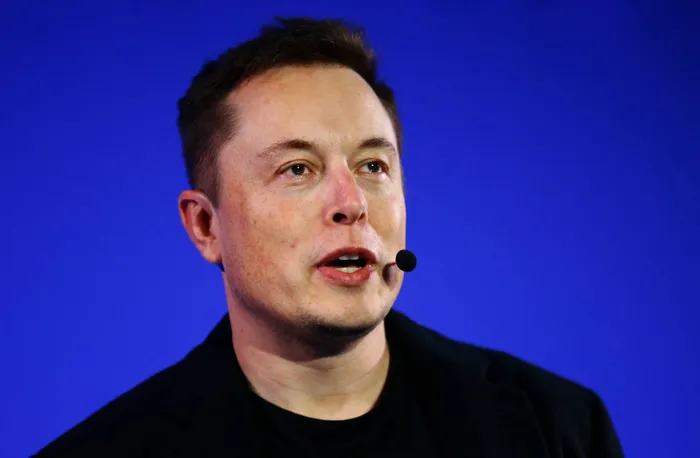MTN partnering with Low Earth Orbit communication providers

The EFF said it has rejected Minister Solly Malatsi’s attempt to bypass South Africa’s 30% local ownership law for Elon Musk’s Starlink, saying legal compliance and transformation must be upheld to protect jobs, sovereignty, and national security.
Image: AP Photo/Francois Mori
* This story has been amended to reflect the views of MTN
Giant digital communication network service provider, MTN, said Low Earth Orbit (LEO) communication providers could significantly accelerate connectivity, “particularly in rural and underserved areas where terrestrial infrastructure is limited or costly to deploy”.
“By providing high-speed, low-latency internet, leveraging LEO capabilities could bridge the digital divide, supporting South Africa’s national goals of broader digital inclusion, economic development, and innovation,” said MTN Group Chief Sustainability and Corporate Affairs Officer Nompilo Morafo.
MTN advocates for partnerships with LEO communication providers as these can enhance service resilience, extend reach, and improve customer experience, especially in challenging geographical areas.
“MTN welcomes cooperation and competition in the telecommunications space, provided there is regulatory parity,” said Morafo.
Morafo said MTN embraces the value of LEO satellite systems and remains open to partnerships that support the extension of connectivity across Africa, including South Africa, in compliance with applicable regulations.
The issue of LEO satellite systems has come to the fore after Starlink internet services, which rely on a constellation of LEO satellites, has applied for their services to be made available in South Africa.
Starlink's owner and Pretoria-born billionaire Elon Musk has refused to relinquish any equity in the business to comply with black empowerment rules — which he describes as being “openly racist”.
Currently, Starlink does not have an operating licence in South Africa after its attempts to get one failed due to Musk’s disagreement with the Broad-Based Black Economic Empowerment (B-BBEE) requirement that foreign telecommunication companies must sell 30% of their stake to local historically disadvantaged groups for them to operate in the country.
Trump signed an Executive Order on February 7, which sought to isolate South Africa, following allegations that white Afrikaners were subjected to orchestrated genocide and anti-white black employment policies, and that South Africa had taken a hostile stance against the US and its allies, including Israel.
This was attributed to Musk’s fightback against B-BBEE regulations using Trump.
Ramaphosa led the delegation to Washington to negotiate with Trump on May 21 to save South Africa/US trade agreements and recruit new investors.
Before the two leaders held a private meeting at the White House, there was a media briefing in which the issue of genocide and crime was discussed. It was in that briefing that South African billionaire Johann Rupert pleaded with Trump to assist South Africa with modern technology to fight crime and even suggested, in the presence of Musk, that Starlink should come to the country.
The negotiation took place before it was reported that Trump had fired Musk as his senior advisor and Department of Government Efficiency head.
Communications and Digital Technologies Minister Solly Malatsi raised eyebrows when, on May 23, two days after the White House meeting, issued a statement announcing the relaxation of the B-BBEE Act in the Information and Communication Technologies (ICT) sector to “allow qualifying multinationals to meet empowerment obligations through alternatives to 30% ownership”.
This opened the floodgates of reaction, including from politicians and civil society groups who believed that Malatsi was facilitating the licensing of Starlink by bypassing B-BBEE requirements.
MTN said all communication companies should be treated the same and without favour.
“We advocate for a regulatory framework based on the principle of 'same service, same rules’.
“All service providers, whether terrestrial or non-terrestrial, should adhere to the same legal, regulatory, and socio-economic obligations, including those relating to customer registration, data protection, localisation, spectrum access, lawful interception, rural coverage, and B-BBEE compliance,” Morafo said.
The EFF, whose leader Julius Malema was not in Trump’s good books, had used Parliament to fight against Malatsi’s policy proposal and threatened to go court to oppose the introduction of Starlink in the country through the backdoor.
“Elon Musk’s Starlink, which was demanded by Johann Rupert at the Oval Office, represents a national security threat, a threat to local jobs, and a threat to sovereignty and independence, as Musk has attempted to coerce access to the South African market using disinformation of a non-existent white genocide as leverage,” read its statement.
* This story has been amended to reflect the views of MTN. MTN's full response can be found in the link below.
** We apologise for any inconvenience caused by the publication of the original article.